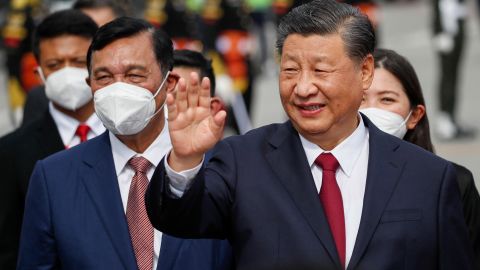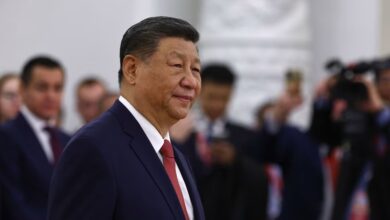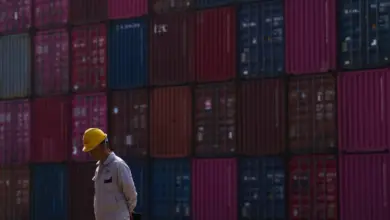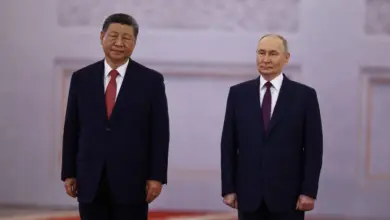
Xi Jinping may have rejected US President Joe Biden’s description of the 21st century as a battle between democracies and autocracies, but as the G20 and APEC summits showed, the Chinese leader remains intent on pushing back at American influence overseas.
Still basking in the afterglow of a Communist Party Congress that last month saw him consolidate and extend his grip on power at home, the strongman leader emerged from China’s zero-Covid isolation with a flurry of in-person meetings in Bali and Bangkok last week.
In contrast to his self-cultivated image as an ideological hardliner, Xi attempted to portray himself as a broad-minded statesman, telling Biden in their meeting last Monday that leaders “should think about and know how to get along with other countries and the wider world.”
This sweeping diplomatic outreach appeared specifically targeted at US allies and regional leaders caught in an intensifying rivalry between Washington and Beijing. Since taking office, Biden has shored up relations with allies and partners to counter China’s growing influence.
“Asia Pacific is no one’s backyard and should not become an area for big power contest,” Xi said Friday at the opening of the APEC summit, in the absence of Biden, who had already flown back to the US.
The whirlwind of face-to-face diplomacy represents something of a victory for Xi, whose self-imposed international isolation had proved extremely costly as China’s relations plummeted with the West and many of its neighbors during the pandemic. Tensions have flared over the origins of the coronavirus, trade, territorial claims, Beijing’s human rights record and its close partnership with Russia despite the devastating war in Ukraine.
“Judging from the sheer volume of international heads of states wanting to have a one-on-one with Xi Jinping, I think it’s safe to say that (the trip) has been successful on Xi’s part,” said Wen-Ti Sung, a political scientist with the Australia National University’s Taiwan Studies Program.
With broad smiles and handshakes, the Chinese leader held exchanges with his counterparts from the US, Australia, France, South Korea, Japan, Singapore, Indonesia, the Philippines and Papua New Guinea, among others – including leaders whose governments had openly criticized Beijing.
And in multiple speeches, Xi, who earlier this year had joined Russian President Vladimir Putin in proclaiming plans to create a “new world order,” attempted to now present himself as a leader for international unity. In a thinly veiled dig at the US, he decried “ideological division,” “block politics,” “cold war mentality,” and attempts to “politicize and weaponize economic and trade relations.”
Over the two summits, Xi held a total of 20 bilateral meetings in a schedule so packed it sometimes stretched late into the night. He also made a point of holding most of the meetings in his hotel.
The optics speak for themselves.
“All the leaders were lining up patiently to meet the ‘emperor’ of China,” said Jean-Pierre Cabestan, a professor of political science at Hong Kong Baptist University.
But despite the apparent outreach, Xi also showed he was ready to confront perceived slights.
In a rare, candid moment caught on camera, Xi chided Canadian Prime Minister Justin Trudeau, accusing him of leaking details of a brief conversation between them. As they parted ways, Xi could be heard off camera describing Trudeau as “very naive.”
“It reminded the whole world that there are limits to this smiling diplomacy – as soon as you cross upon China’s interest you can get into trouble,” Cabestan said.
Xi’s goal
For Xi, the diplomatic flurry with Western leaders is a crucial first step toward normalizing relations – which had been severely strained by his assertive foreign policy and the “wolf-warrior” diplomacy of Chinese diplomats.
Despite its often aggressive stance, Beijing is increasingly worried about economic decoupling with the West. The poor state of the Chinese economy – thanks to unrelenting zero-Covid lockdowns and the recent US ban on the export of advanced semiconductor chips to China – have added to Beijing’s urgency to reverse the trend.
Notably, among the leaders Xi met in Bali was Prime Minister Mark Rutte of the Netherlands, home to semiconductor giant ASML – which is under increasing pressure from the US to stop selling its products to China.




